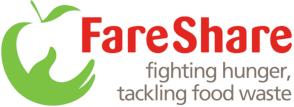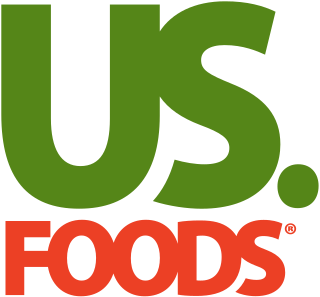
Corporate social responsibility (CSR) or corporate social impact is a form of international private business self-regulation which aims to contribute to societal goals of a philanthropic, activist, or charitable nature by engaging in, with, or supporting professional service volunteering through pro bono programs, community development, administering monetary grants to non-profit organizations for the public benefit, or to conduct ethically oriented business and investment practices. While once it was possible to describe CSR as an internal organizational policy or a corporate ethic strategy similar to what is now known today as Environmental, Social, Governance (ESG); that time has passed as various companies have pledged to go beyond that or have been mandated or incentivized by governments to have a better impact on the surrounding community. In addition, national and international standards, laws, and business models have been developed to facilitate and incentivize this phenomenon. Various organizations have used their authority to push it beyond individual or industry-wide initiatives. In contrast, it has been considered a form of corporate self-regulation for some time, over the last decade or so it has moved considerably from voluntary decisions at the level of individual organizations to mandatory schemes at regional, national, and international levels. Moreover, scholars and firms are using the term "creating shared value", an extension of corporate social responsibility, to explain ways of doing business in a socially responsible way while making profits.

Food technology is a branch of food science that addresses the production, preservation, quality control and research and development of food products.

The foodservice or catering industry includes the businesses, institutions, and companies which prepare meals outside the home. It includes restaurants, grocery stores, school and hospital cafeterias, catering operations, and many other formats.
A sustainable business, or a green business, is an enterprise which has a minimal negative impact or potentially a positive effect on the global or local environment, community, society, or economy—a business that attempts to meet the triple bottom line. They cluster under different groupings and the whole is sometimes referred to as "green capitalism". Often, sustainable businesses have progressive environmental and human rights policies. In general, a business is described as green if it matches the following four criteria:
- It incorporates principles of sustainability into each of its business decisions.
- It supplies environmentally friendly products or services that replace demand for nongreen products and/or services.
- It is greener than traditional competition.
- It has made an enduring commitment to environmental principles in its business operations.

The National Restaurant Association is a restaurant industry business association in the United States, representing more than 380,000 restaurant locations. It also operates the National Restaurant Association Educational Foundation. The association was founded in 1919 and is headquartered in Washington, D.C.

WRAP is a British registered charity. It works with businesses, individuals and communities to achieve a circular economy, by helping them reduce waste, develop sustainable products and use resources in an efficient way.

Food loss and waste is food that is not eaten. The causes of food waste or loss are numerous and occur throughout the food system, during production, processing, distribution, retail and food service sales, and consumption. Overall, about one-third of the world's food is thrown away. A similar amount is lost on top of that by feeding human-edible food to farm animals. A 2021 meta-analysis, that did not include food lost during production, by the United Nations Environment Programme found that food waste was a challenge in all countries at all levels of economic development. The analysis estimated that global food waste was 931 million tonnes of food waste across three sectors: 61 percent from households, 26 percent from food service and 13 percent from retail.

Food safety is used as a scientific method/discipline describing handling, preparation, and storage of food in ways that prevent foodborne illness. The occurrence of two or more cases of a similar illness resulting from the ingestion of a common food is known as a food-borne disease outbreak. This includes a number of routines that should be followed to avoid potential health hazards. In this way, food safety often overlaps with food defense to prevent harm to consumers. The tracks within this line of thought are safety between industry and the market and then between the market and the consumer. In considering industry-to-market practices, food safety considerations include the origins of food including the practices relating to food labeling, food hygiene, food additives and pesticide residues, as well as policies on biotechnology and food and guidelines for the management of governmental import and export inspection and certification systems for foods. In considering market-to-consumer practices, the usual thought is that food ought to be safe in the market and the concern is safe delivery and preparation of the food for the consumer. Food safety, nutrition and food security are closely related. Unhealthy food creates a cycle of disease and malnutrition that affects infants and adults as well.

Food rescue, also called food recovery, food salvage or surplus food redistribution, is the practice of gleaning edible food that would otherwise go to waste from places such as farms, produce markets, grocery stores, restaurants, or dining facilities and distributing it to local emergency food programs.

FareShare is a charity network established in 1994 that aims to relieve food poverty and reduce food waste in the United Kingdom. It does this by obtaining good-quality surplus food from the food industry that would otherwise have gone to waste and sending it to frontline charities and community groups across the UK.

Disposable food packaging comprises disposable products often found in fast-food restaurants, take-out restaurants and catering establishments. Typical products are foam food containers, plates, bowls, cups, utensils, doilies and tray papers. These products can be made from a number of materials including plastics, paper, bioresins, wood and bamboo.

The Association for Renewable Energy and Clean Technology, previously known as Renewable Energy Association (REA), is a renewable energy and clean technology trade association in the UK encompassing all of renewables industry in the United Kingdom. REA covers renewable power & flexibility, heat and cooling, circular bioresources and transport. The REA is a not-for-profit company.
Sustainable products are products either sustainably sourced, manufactured or processed and provide environmental, social, and economic benefits while protecting public health and the environment throughout their whole life cycle, from the extraction of raw materials to the final disposal.

US Foods Holding Corp. is an American food service distributor founded in 1989. With approximately $24 billion in annual revenue, US Foods was the 10th largest private company in the US up until its IPO. Many of the entities that make up US Foods were founded in the 19th century, including one that sold provisions to travelers heading west during the 1850s gold rush. US Foods offers more than 350,000 national brand products and its own "exclusive brand" items, ranging from fresh meats and produce to prepackaged and frozen foods. The company employs approximately 25,200 people in more than 60 locations nationwide and provides food and related products to more than 250,000 customers, including independent and multi-unit restaurants, healthcare and hospitality entities, government and educational institutions. The company is headquartered in Rosemont, Illinois, and is a publicly traded company trading under the ticker symbol USFD on the New York Stock Exchange.

Elizabeth Jane Goodwin OBE is a British businesswoman and environmentalist.

An expiration date or expiry date is a previously determined date after which something should no longer be used, either by operation of law or by exceeding the anticipated shelf life for perishable goods. Expiration dates are applied to selected food products and to some other manufactured products like infant car seats where the age of the product may impact its safe use.

Henry Richard Melville Dimbleby is a British businessman and cookery writer who is a co-founder of Leon Restaurants and the Sustainable Restaurant Association. He was appointed lead non-executive board member of the Department for Environment, Food and Rural Affairs in March 2018. He is a son of BBC broadcaster David Dimbleby and of Josceline Dimbleby.

John Vincent MBE is a British entrepreneur who is the chief executive and co-founder of fast food chain Leon Restaurants. Vincent is also known for his work in developing the 2013 School Food Plan, for which he was appointed an MBE; for chairing the Council for Sustainable Business; and for co-authoring seven LEON cookbooks.
France's anti-waste law for a circular economy was passed in an effort to eliminate improper disposal of waste as well as limit excessive waste. This law is part of Europe's larger environmental activism efforts and builds on previous laws the country has passed.
Miranda Mirosa is a New Zealand academic, and is a full professor in the Department of Food Science at the University of Otago, specialising in sustainability, food waste and upcycled food products. She is a Fellow of the New Zealand Institute of Food Science and Technology.














